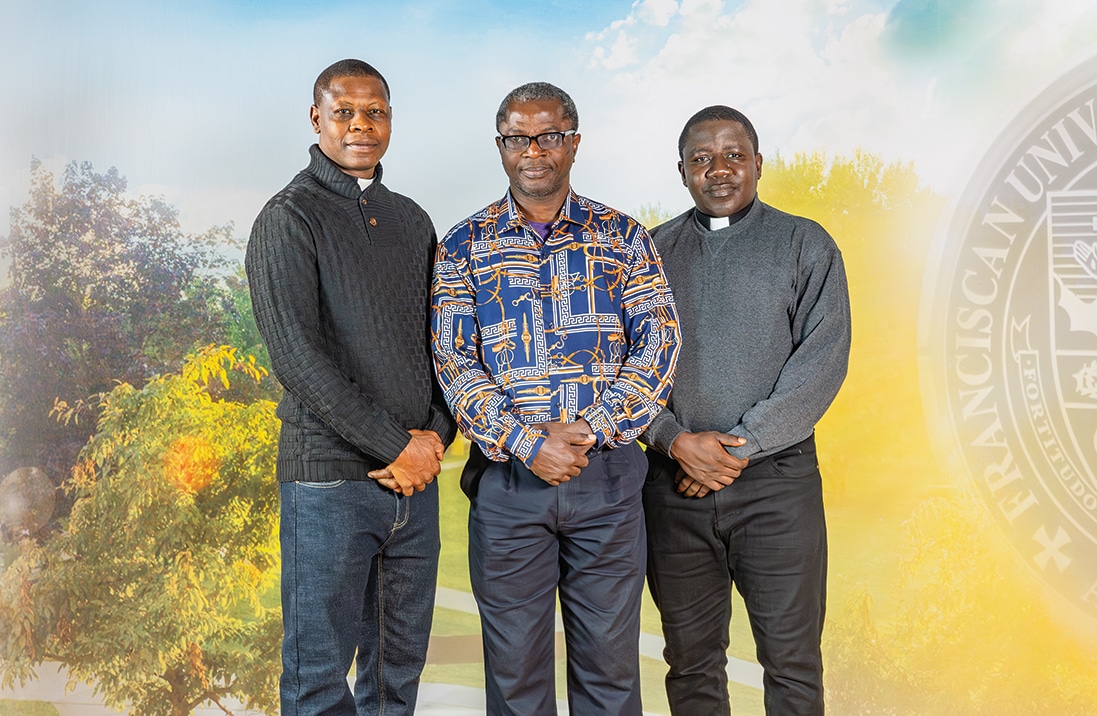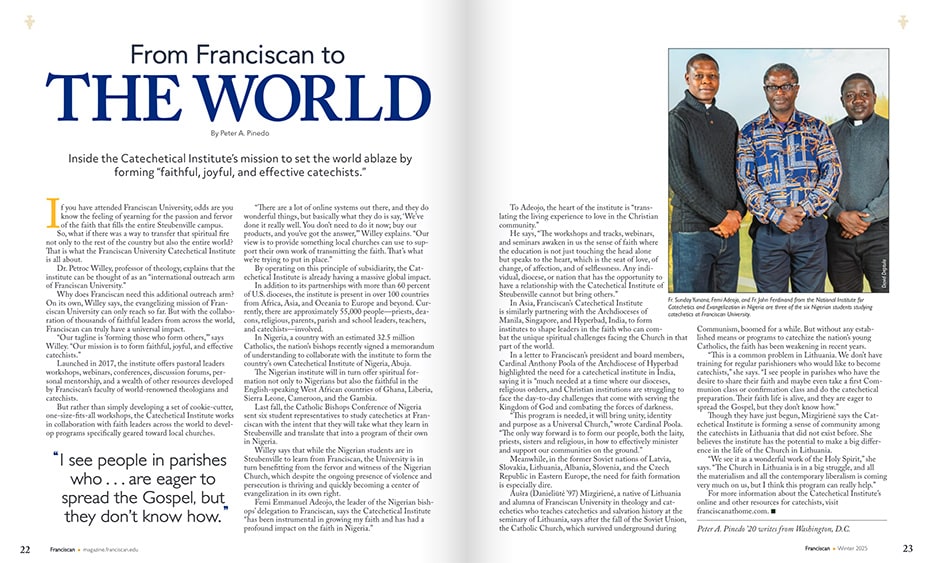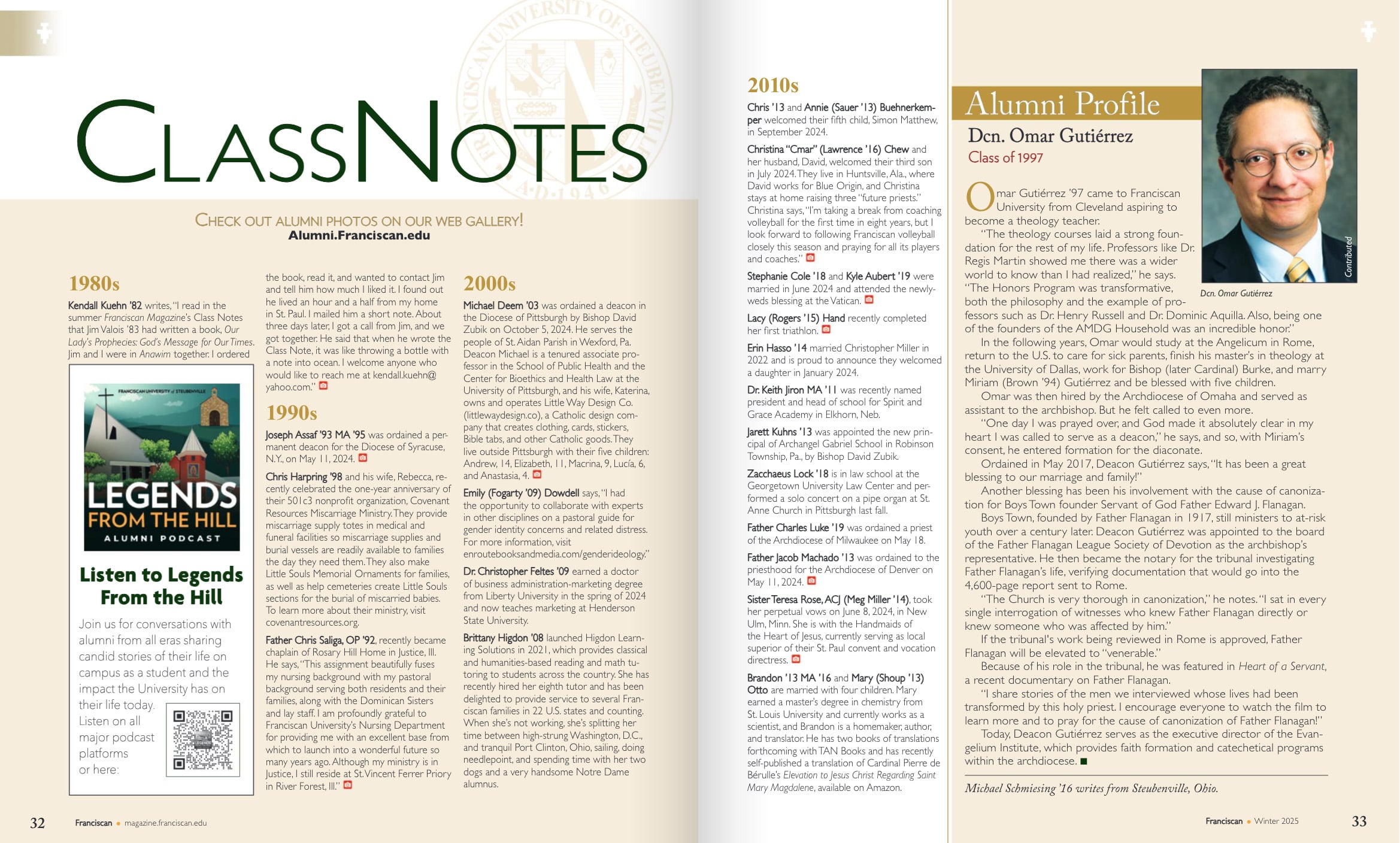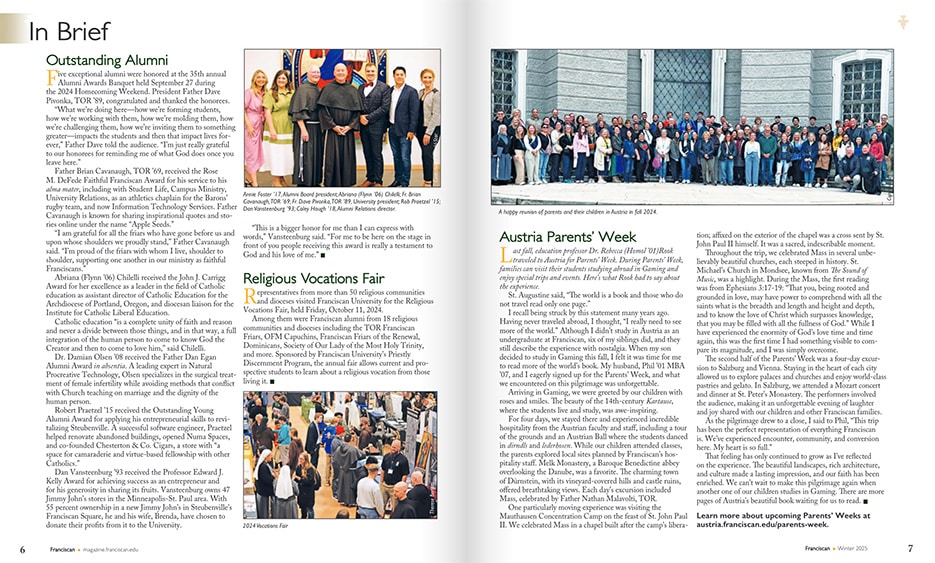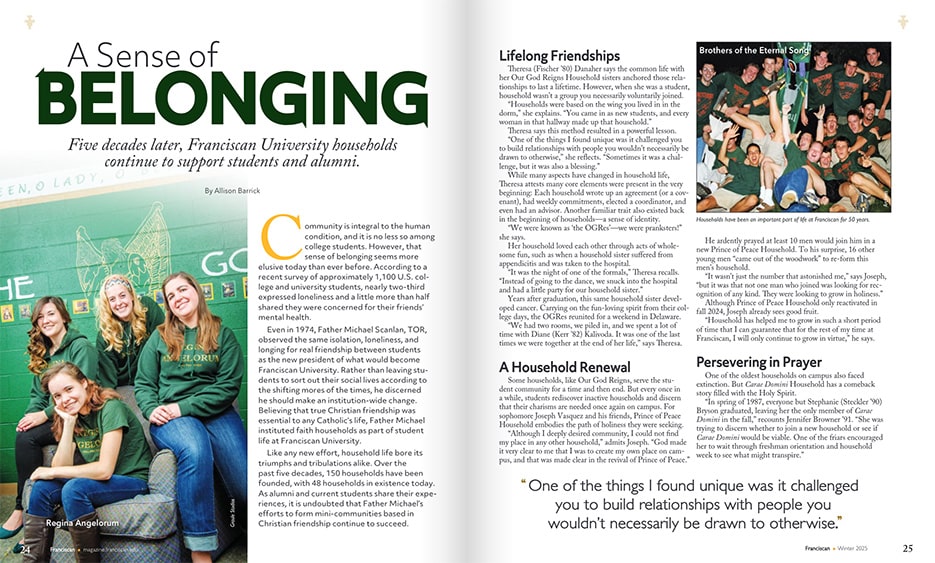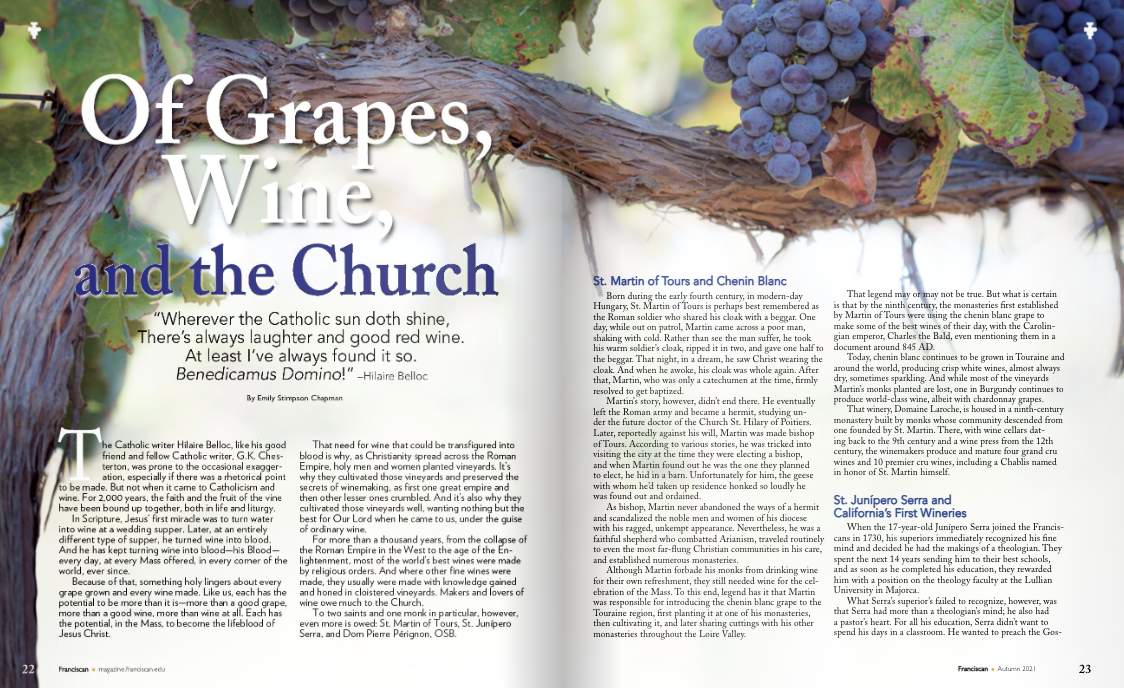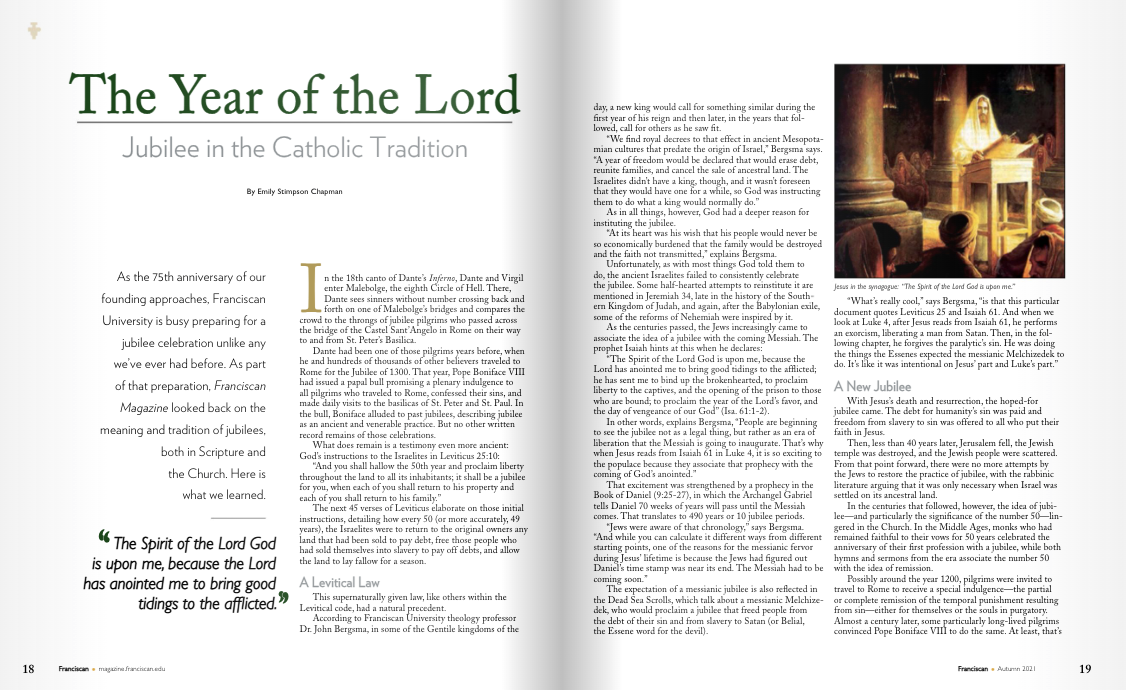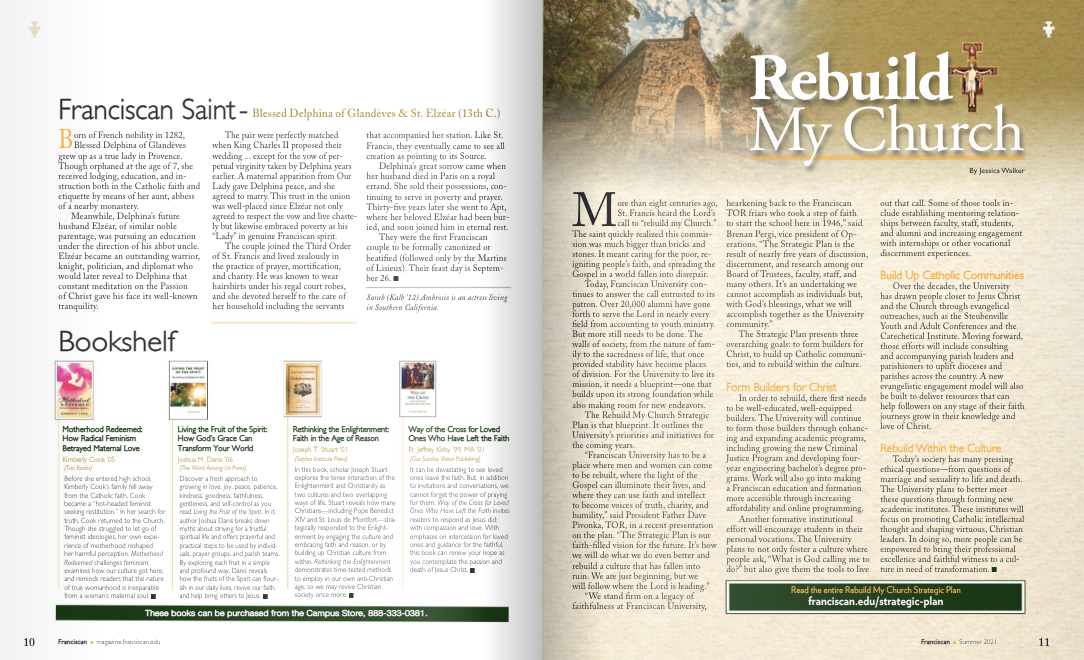If you have attended Franciscan University, odds are you know the feeling of yearning for the passion and fervor of the faith that fills the entire Steubenville campus.
So, what if there was a way to transfer that spiritual fire not only to the rest of the country but also the entire world? That is what the Franciscan University Catechetical Institute is all about.
Dr. Petroc Willey, professor of theology, explains that the institute can be thought of as an “international outreach arm of Franciscan University.”
Why does Franciscan need this additional outreach arm? On its own, Willey says, the evangelizing mission of Franciscan University can only reach so far. But with the collaboration of thousands of faithful leaders from across the world, Franciscan can truly have a universal impact.
“Our tagline is ‘forming those who form others,’” says Willey. “Our mission is to form faithful, joyful, and effective catechists.”
Launched in 2017, the institute offers pastoral leaders workshops, webinars, conferences, discussion forums, personal mentorship, and a wealth of other resources developed by Franciscan’s faculty of world-renowned theologians and catechists.
But rather than simply developing a set of cookie-cutter, one-size-fits-all workshops, the Catechetical Institute works in collaboration with faith leaders across the world to develop programs specifically geared toward local churches.
“There are a lot of online systems out there, and they do wonderful things, but basically what they do is say, ‘We’ve done it really well. You don’t need to do it now; buy our products, and you’ve got the answer,’” Willey explains. “Our view is to provide something local churches can use to support their own work of transmitting the faith. That’s what we’re trying to put in place.”
By operating on this principle of subsidiarity, the Catechetical Institute is already having a massive global impact.
In addition to its partnerships with more than 60 percent of U.S. dioceses, the institute is present in over 100 countries from Africa, Asia, and Oceania to Europe and beyond. Currently, there are approximately 55,000 people—priests, deacons, religious, parents, parish and school leaders, teachers, and catechists—involved.
In Nigeria, a country with an estimated 32.5 million Catholics, the nation’s bishops recently signed a memorandum of understanding to collaborate with the institute to form the country’s own Catechetical Institute of Nigeria, Abuja.
The Nigerian institute will in turn offer spiritual formation not only to Nigerians but also the faithful in the English-speaking West African countries of Ghana, Liberia, Sierra Leone, Cameroon, and the Gambia.
Last fall, the Catholic Bishops Conference of Nigeria sent six student representatives to study catechetics at Franciscan with the intent that they will take what they learn in Steubenville and translate that into a program of their own in Nigeria.
Willey says that while the Nigerian students are in Steubenville to learn from Franciscan, the University is in turn benefitting from the fervor and witness of the Nigerian Church, which despite the ongoing presence of violence and persecution is thriving and quickly becoming a center of evangelization in its own right.
Femi Emmanuel Adeojo, the leader of the Nigerian bishops’ delegation to Franciscan, says the Catechetical Institute “has been instrumental in growing my faith and has had a profound impact on the faith in Nigeria.”
To Adeojo, the heart of the institute is “translating the living experience to love in the Christian community.”
He says, “The workshops and tracks, webinars, and seminars awaken in us the sense of faith where the education is not just touching the head alone but speaks to the heart, which is the seat of love, of change, of affection, and of selflessness. Any individual, diocese, or nation that has the opportunity to have a relationship with the Catechetical Institute of Steubenville cannot but bring others.”
In Asia, Franciscan’s Catechetical Institute is similarly partnering with the Archdioceses of Manila, Singapore, and Hyperbad, India, to form institutes to shape leaders in the faith who can combat the unique spiritual challenges facing the Church in that part of the world.
In a letter to Franciscan’s president and board members, Cardinal Anthony Poola of the Archdiocese of Hyperbad highlighted the need for a catechetical institute in India, saying it is “much needed at a time where our dioceses, religious orders, and Christian institutions are struggling to face the day-to-day challenges that come with serving the Kingdom of God and combating the forces of darkness.
“This program is needed, it will bring unity, identity and purpose as a Universal Church,” wrote Cardinal Poola. “The only way forward is to form our people, both the laity, priests, sisters and religious, in how to effectively minister and support our communities on the ground.”
Meanwhile, in the former Soviet nations of Latvia, Slovakia, Lithuania, Albania, Slovenia, and the Czech Republic in Eastern Europe, the need for faith formation is especially dire.
Aušra (Danieliūtė ’97) Mizgirienė, a native of Lithuania and alumna of Franciscan University in theology and catechetics who teaches catechetics and salvation history at the seminary of Lithuania, says after the fall of the Soviet Union, the Catholic Church, which survived underground during Communism, boomed for a while. But without any established means or programs to catechize the nation’s young Catholics, the faith has been weakening in recent years.
“This is a common problem in Lithuania. We don’t have training for regular parishioners who would like to become catechists,” she says. “I see people in parishes who have the desire to share their faith and maybe even take a first Communion class or confirmation class and do the catechetical preparation. Their faith life is alive, and they are eager to spread the Gospel, but they don’t know how.”
Though they have just begun, Mizgirienė says the Catechetical Institute is forming a sense of community among the catechists in Lithuania that did not exist before. She believes the institute has the potential to make a big difference in the life of the Church in Lithuania.
“We see it as a wonderful work of the Holy Spirit,” she says. “The Church in Lithuania is in a big struggle, and all the materialism and all the contemporary liberalism is coming very much on us, but I think this program can really help.”
For more information about the Catechetical Institute’s online and other resources for catechists, visit franciscanathome.com.



